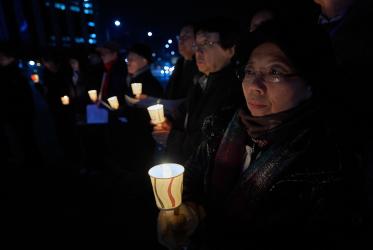Displaying 1 - 20 of 35
Voice of churches vital during UN women’s rights talks
28 March 2024
What can churches do to prevent modern slavery?
22 February 2024
Ellyanne Chlystun-Githae Wanjiku to COP28: “listen more to children”
13 December 2023
ACT Alliance general secretary: “equity is not negotiable”
26 September 2023
As Bethlehem prepares for Christmas, ‘it’s all about community’
08 December 2022

















